Meet an Educator is a monthly series by Early Bird, where we feature the work of educators across India who are actively spreading the joy of birds and nature. This month’s featured educator is Harshada Gauns, a trained zoologist with seven years of experience in conducting and implementing biodiversity-based research.
Tell us about yourself
I am Harshada Gauns, a trained Zoologist with seven years of experience in conducting and implementing biodiversity-based research and three years working closely with the communities in Goa. I create biodiversity management plans for leading business houses in Goa, and work on solid waste management at the village level. I have worked with the Centre for Environment Education, Mineral Foundation of Goa in the past and am currently on the Executive Board of Goa Bird Conservation Network and Biodiversity Management committee (Navelim).
I have engaged with students from more than 60 schools across Goa, taking the message of nature, environment, conservation, and sustainable living to them. I am currently engaged as an Assistant Professor in the Department of Zoology at Government college of Arts Science and Commerce – Sanquelim, Goa, and am the founder of Arannya Environment Research organization (AERO).
Are you a birder? What about bird watching excites you?
Yes, I am a bird watcher and love everything about birds. Birds are the first faunal group that I started observing in my early college days; this has trickled down into fascination towards wildlife and nature conservation.
I remember a day from our first year of college when an Indian paradise flycatcher flew like a ribbon and came and sat on a tree next to the window. And just to have a closer look at it, me and my friends bunked class that entire day and were chasing him around from one place to another until people started calling us a bunch of fools! There are a number of such incidents that I cherish – like searching for Indian pitta all across Goa but finally seeing it in my backyard!; Or standing still for an hour and a half to record the call of the Clamorous Reed Warbler with my friend and avid birdwatcher Mr. Mandar Bhagat to the time I saved my husband from stepping on a cobra!
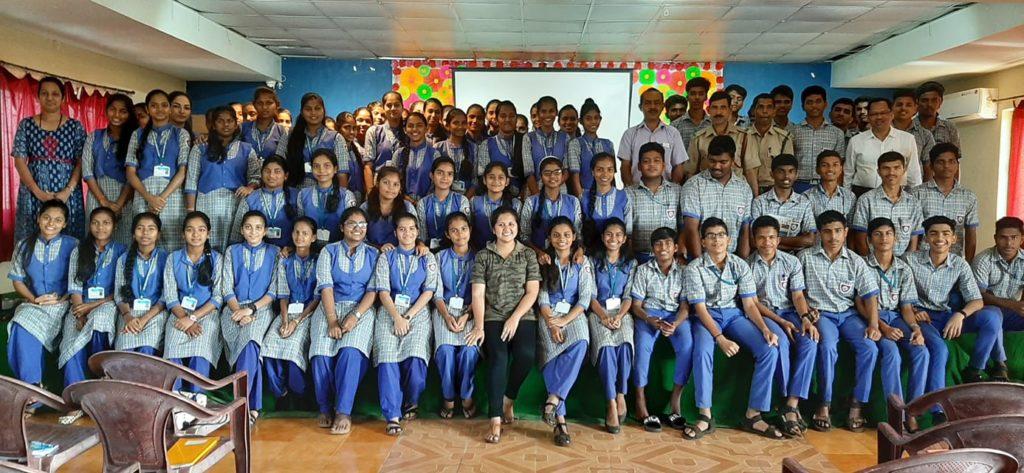
When and how did you get interested in bird/nature education?
It was our college field trip to Carambolim Lake (IBA from Goa), we were clueless about why our teachers have brought us here until a stranger (now a fellow birdwatcher) Mr. Paresh Gosavi showed us the Oriental Darter through his field scope. For me, that sparked my journey of observing birds. Once home, I realized that similar birds could be seen in my backyard too! Then, the observation never stopped! This made me and my friends document my backyard wetland to an extent that now the same area has been declared as an IBA named ‘Navelim Wetlands’. In this process, I had the opportunity to interact with people on different platforms realizing that I want to go deeper into nature education to spread awareness about our rich natural heritage.
What do you hope to achieve through your education work?
My long term vision is to help create a society that lives close to nature, and sustainably. While policies take time to be implemented at a larger scale, I hope our work inspires and empowers people to ask “What are the individual actions that you can take today which will have an impact on our nature in the long run?”
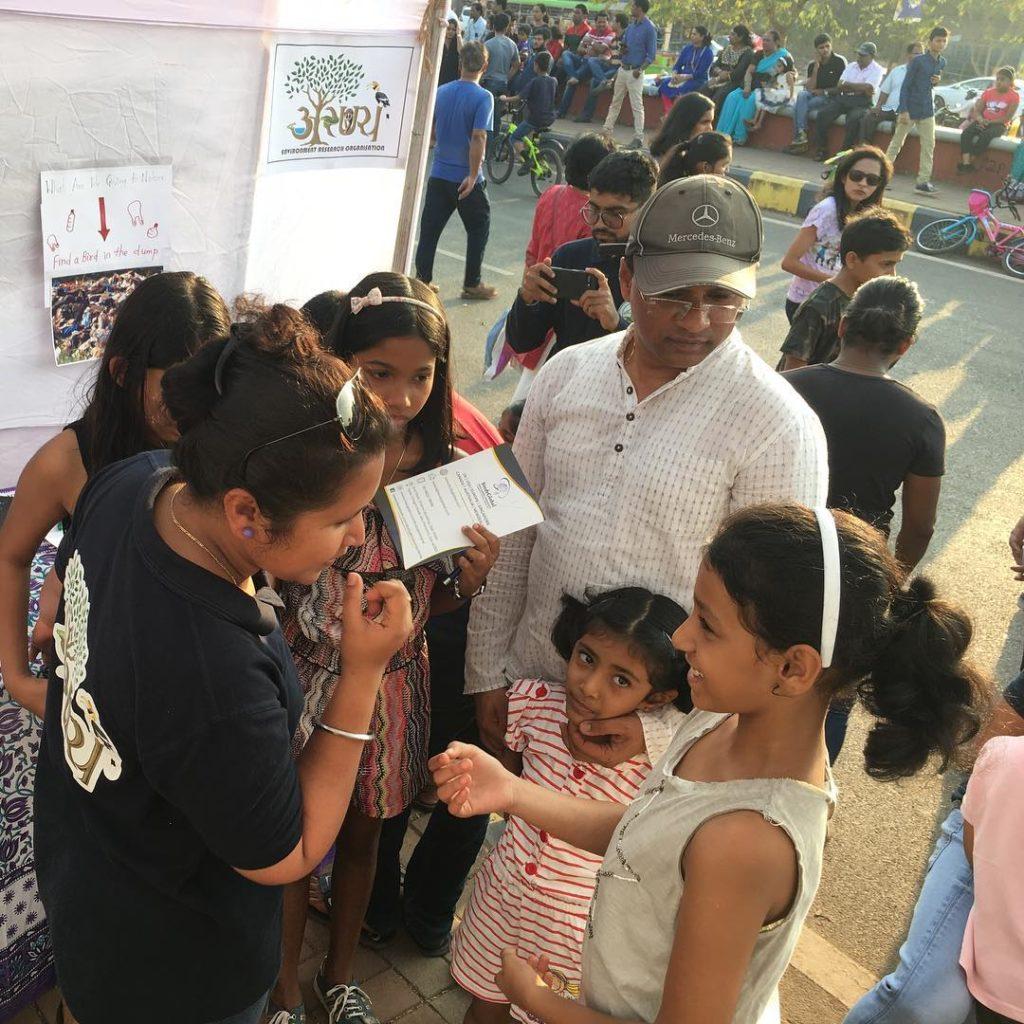
I believe that policies alone may not inspire people to change. Positive change needs to come from within and for that we need to create a well-informed society, localize efforts and make resources accessible to communities.
Why do you believe it is important for children to learn about birds or connect with nature?
Birds are a part of every child’s life. Most of the stories told by our grandparents, or it may be school textbook stories…. all revolve around wildlife, especially birds. As we grow older, somehow we lose this connect with nature because of the education system or parents who stresses more on mainstream subjects. Eventually, EVS is neglected. Though today’s children are our future, if we neglect sensitive topics like nature education, there might not be a future generation which is sensitive towards issues that our world is facing right now.
I believe that by teaching identification of birds, we can make them more aware about our biodiversity and more attentive to our local environment in general. You never know, some kids might consider further studying wildlife / birds as a career option, being scientists or aid in collecting valuable data for science!
What tools or resources have helped you in teaching about birds?
Taking people out on a nature trail with binoculars and a field scope have been an excellent tools to get people hooked on the subject. Seeing birds on screen and in their wild habitats are two entirely different ball games. The response we generally receive after a nature trail is extraordinary; however teaching in a classroom is also necessary. As far as indoor sessions go, other than screening videos or calls, indoor games, setting up photo galleries, displaying facts, learning activities have been useful tools.
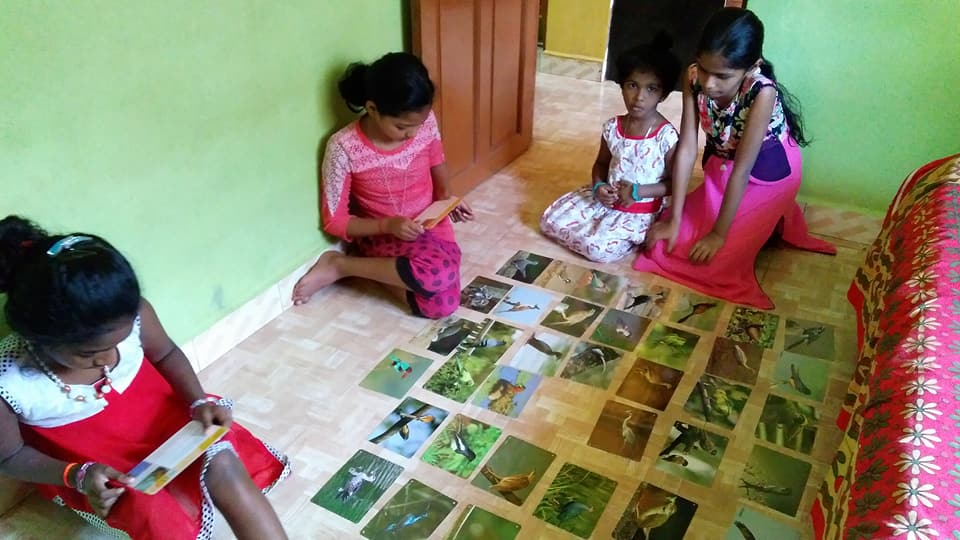
Have you encountered a significant challenge as a bird/nature educator, how did you overcome it?
Being a part of a patriarchal system has always presented difficulties when at the forefront, or leading an effort as I have done so in the past. Over time, things fell into place as I believed in myself, stopped bothering about what people call me and trusted what my well-wishers told me “Not everybody is capable of doing what you do and we need people like you to do something for nature that is degrading.”
Do share any memorable moment or experience you have had in teaching kids about birds/nature.
Every moment I share with kids as I teach about birds has been memorable. Every walk feels like a new experience, it teaches me many things. What I cherish the most are the questions I receive from innocent yet curious kids, like – are birds smart? Can birds go crazy? How many birds have you seen? I don’t like birds, how can I keep them away? I love to see my cat killing birds, do you think I am a bad person? The list is endless.
With fondness, I recall how in my early days of being a nature educator, my way of interacting might have been monotonous. However, the varied types of responses (both positive and negative) that I have received has changed my approach towards nature education.
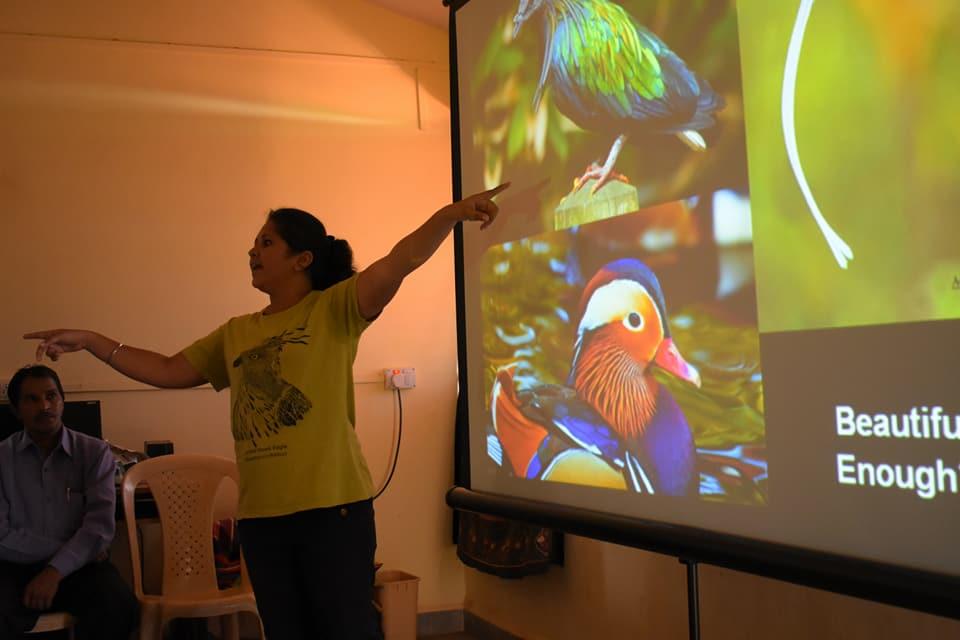
Have you noticed any changes in your learners after they received exposure to birds and nature-based learning?
I have seen a significant change in some of the students/kids that I have interacted with. A few examples – I had gone to one High School in Goa for a session and one student came forward overwhelmed with the facts she had learnt. She took my contact number and texted me on WhatsApp, sending along some photographs of how she has set up a bird bath and she is really happy to see many birds visit her backyard. Till date, she is in contact and always sends me photographs for identification of birds, we discuss nature and related aspects.
Another time, my team initiated a campaign in Goa called NoSUP (No Single Use Plastic) wherein youths from all over participated; much to my surprise, some of the members like Gaurav Naik, Ratnesh Shirodkar, Tejashri Mahale, Rashmi Anurlekar came forward and started a chain to carry forward the campaign in their local communities. I do feel there is still a long way to go, and many lives to be touched to call it a significant level of change and achieve my dream of creating a well-informed society.
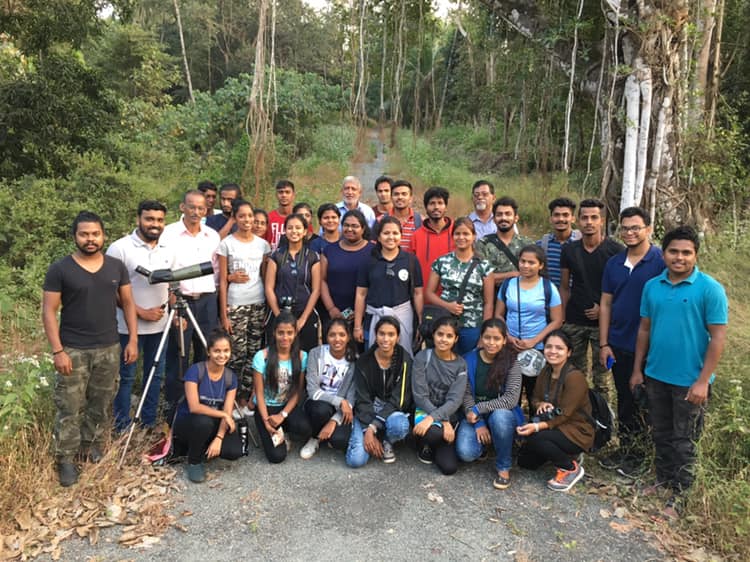

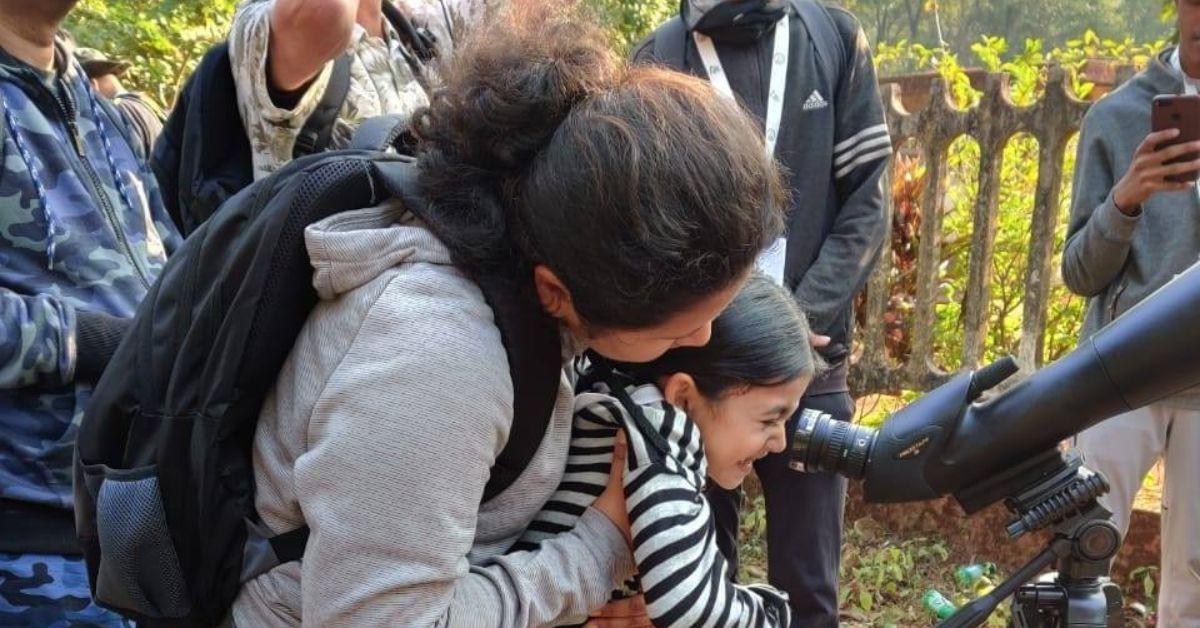
Very interesting narration. It is motivational for the young mind. Section on ” memorable moment” says it all.